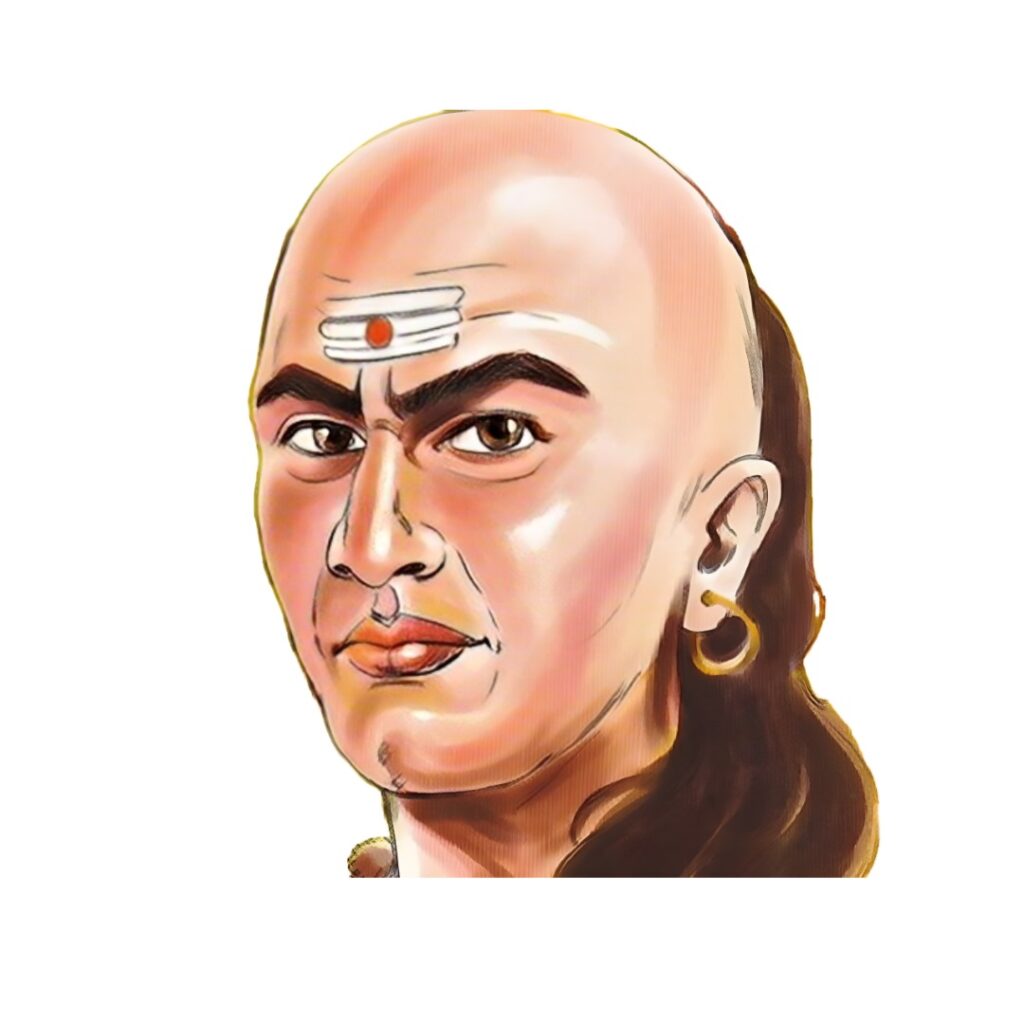Table of Contents
Chanakya Niti: Ancient Keys to Unlock Success Now
Legend has it that once a king insulted an elderly Brahmin named Chanakya at his court. Little did the ruler know this would prove his greatest undoing. Using his sharp intellect and profound understanding of statecraft, the learned Chanakya orchestrated the king’s downfall. He then installed his own chosen Chandragupta Maurya on the throne, who went on to found one of India’s greatest empires.

This dramatic tale underscores the sheer genius of Acharya Chanakya, author of the ancient Indian political treatise called the Arthashastra. Composed around 300 BCE, this formidable volume covers everything from fiscal policies to military strategy. However, its invaluable advice on power, administration and wealth creation remains strikingly applicable today.
So how can India’s forward-looking youth benefit from Chanakya’s words written 23 centuries ago? Let’s unearth this timeless wisdom that is still influencing young leaders and entrepreneurs in the 21st century!
Why 80% of Indian Engineers Remain Unemployable According to Chanakya’s Teachings
India’s engineering colleges churn out over 1.5 million graduates every year. Shockingly, a study by Aspiring Minds reveals that 80% of them remain unemployable for any job. Why does this mammoth $200 billion Indian education system fail to prepare youth for the workforce?

Chanakya’s seminal treatise Arthashastra holds vital clues. He writes, “The capability of a trained intellect depends wholly on practical application.” In other words, rote learning devoid of real-world experience produces incompetent minds unfit for purpose.
Zooming out, India’s obsolete academic model focused on archaic syllabi and rote learning dates back to the British Raj. It emphasizes abstract theory over practical training and examinations over experiential learning. This approach made sense for the colonial administration to generate obedient clerks for government offices. Fast forward to the 21st century, and the remnants of this dysfunctional system still plague Indian education.
However, the times are changing. With technologies like AI, machine learning, and cloud computing taking over the workplace, job seekers today need hands-on specialized skills rather than degrees. Top companies like Google, Apple and Facebook care more about coding proficiency than college scores. Just like Chanakya highlighted centuries ago, success today depends wholly on practical experience.
key takeaways from Acharya Chanakya’s teachings:
1. Indian youth should focus on building in-demand practical skills from the start rather than chasing academic grades alone.
2. Develop expertise in next-gen technologies like Data Science, Full Stack Development, Cloud Engineering etc. to future-proof careers
3. Solve real problems for people, and develop GitHub profiles showcasing cool projects rather than rote learning for exams.
Chanakya’s Niti on Deciding Whether to Switch Jobs or Stay On
The modern workplace poses unique dilemmas. Stagnating in an unsatisfying job with limited growth prospects. But unsure whether switching to a new company is the right move.
Over 2300 years ago, Acharya Chanakya had already resolved this pressing career quandary facing today’s youth. He advises in the Arthashastra:
“An individual endowed with ministerial knowledge should seek refuge with a king who is qualified to become master of the earth. If such a king is not available, refuge should be sought with a king who is self-sufficient.”

Let’s break this down. Say you feel trapped in a toxic work environment failing to appreciate your talents. Chanakya suggests first try seeking a leadership role under a visionary boss who nurtures your full potential.
However, if such a dream company remains elusive, the wise guru gives a pragmatic alternative. Pursue opportunities with empowered organizations willing to utilize your skills impactfully, even if other factors are less favourable.
The key takeaway? Align your talents with companies that value what you bring to the table. But retain loyalty to fuel their continued success rather than purely selfish interests. In other words, build a win-win work equation boosting careers and business growth in tandem.
This evergreen framework can resolve even the trickiest modern workplace transitions elegantly. No wonder corporate honchos even today look towards Acharya Chanakya for direction 3000 years later!
Chanakya’s Three-Pronged Definition of True Success in Life
The relentless quest for success drives humanity. But strangely, no consensus exists on what ‘success’ actually means! For some, it may connote money. For others, fame or power. Often, even achieving one’s goals fails to deliver the ever-elusive feeling of making it big.

This frustration again resonates across millennia. In 300 BCE itself, Acharya Chanakya crystallized his learnings on success through key Sanskrit verses in Arthashastra:
“The combination of power and success is believed to comprise of three powers – intellectual power, princely power, and enthusiastic effort.”
Let’s decode this profound framework:
Intellectual Power: Knowledge, education and analytical skills open early doors to opportunity
Princely Power: Influence, authority and strong networking provide leverage
Enthusiastic Effort: Finally, persistent action and self-belief drive peak performance
True success requires excelling across all three vectors – smarts, social capital and vigorous exertion. Someone born into royalty may enjoy princely power but flounder without intellect. A skilled doctor may lack fiery ambition. But someone combining all facets in harmony can achieve extraordinary results.
This integrated perspective provides meaningful direction to modern young trailblazers. Chase knowledge, connections and boundless energy in tandem to materialize success as synonymous with contentment.
Chanakya’s intense contemplation manifests yet again in a deceptively simple philosophy speaking directly to the 21st century. Are you listening?
How to Stay Powerful and Successful Once You Reach the Top per Chanakya
The top of the mountain is crowded. And the summit is infinitely harder to retain having conquered once already. Chanakya was well aware of this tendency for great heroes to fall from grace by succumbing to ego and entitlement.
He warns kings and leaders in Arthashastra: “He should enjoy sensual pleasures without contravening his spiritual good and material well-being; he should not deprive himself of pleasures.”

In other words, those enjoying hard-won power often let success get to their head. In their intoxication, they lose sight of dharmic duty by indulging excessively without restraint. Thereby sowing the seeds of their destruction.
This penetrating insight applies as much to modern-day politicians, celebrities and star performers as ancient rulers. For continued success, Chanakya prescribes mastering sensory pleasures through disciplined temperance rather than extreme denial or overindulgence. Stay grounded in humility by finding contentment in the simple joys of family, nature and service.
Furthermore, yoga guru Patanjali echoes: “Be humble, be harmless, have no pretension, be upright, forbearing, serving, contented, steadfastly mastering the senses, mindful and aware.”
In conclusion, those reaching pinnacles of prestige must remain ever vigilant against ego. By retaining humility, self-restraint and ethics, power endures. Else downfall remains inevitable as swiftly as the rise itself.
Conclusion
Why Chanakya’s Teachings Remain the Secret Sauce to Success Even Today
Across 5 sections, we covered diverse facets of Chanakya’s profound wisdom around power, wealth and success – issues intrinsic to human nature across eras. His contributions include:
• Stress on practical skills over academic grades
• Framework to evaluate career moves
• Composite definition of success
• Cautions for retaining power
At the heart, Acharya Chanakya masterfully balances lofty idealism with ground realities. He pairs spiritual welfare with material progress. His ruthless pragmatism meshes with sensitivity towards duty and ethics. Thereby laying the foundations for his pupil Chandragupta Maurya’s meteoric rise.
Much like the empire created in ancient Magadh flourished by Chanakya’s counsel, even modern rulers and administrators swear by his teachings. Singapore’s visionary first premier Lee Kuan Yew proudly declared himself to be 85% Chanakyan.
As we are in 2023 replete with economic uncertainty, maybe it’s time to revisit the Arthashastra. For India’s high-achieving youth too, Acharya Chanakya’s practical wisdom around actualizing self-worth holds the key to unlocking true dharmic success even 300 decades later!
Read more about Chanakya by clicking here
FAQS
What is the concept of Chanakya Niti?
Chanakya Niti refers to the political, economic, and lifestyle philosophies propounded by Chanakya, an ancient Hindu teacher and royal advisor. His teachings cover diverse topics like governance, foreign policy, wealth creation, ethics, mental discipline etc. with a focus on pragmatic success while upholding righteous conduct.
What is the theory of Chanakya?
Chanakya’s theory focuses on statecraft, strategies for effective state administration and political cunning based on practical wisdom rather than lofty moral principles alone. Core areas covered include proper governmental procedures & policies, vigilance/spying mechanisms, taxation models, the welfare of various societal groups, managing allies & enemies etc.
What was Chanakya famous for?
Chanakya was most famous for masterminding the rise of Chandragupta Maurya as emperor through crafty statecraft by exploiting the weaknesses of the ruling Nanda dynasty. His genius lies in his deep study of human behavior which he leveraged by understanding timing, power shifts etc.
Who was trained by Chanakya?
Chandragupta Maurya, who founded one of the greatest Indian empires, was trained in warfare, politics and strategy by Guru Chanakya. He mentored Chandragupta and guided him to defeat the mighty Nanda kings by opportunistically capitalizing on internal decay in their vast empire.
How is Chanakya’s wisdom still relevant today?
The time-tested principles enshrined in Chanakya’s teachings related to good governance, financial prosperity, ethics, diplomacy, and leadership remain profoundly relevant close to 20 centuries later and are still applied by modern visionaries.
What does Chanakya say about practical knowledge?
Chanakya strongly emphasizes success arises from practical experience rather than mere theoretical learning. This wisdom resonates highly in the 21st century skills-driven economy as well with employers valuing hands-on skills over grades or degrees sans real expertise.
How did a scholar overthrow an emperor as per Chanakyaniti?
With meticulous planning leveraging spies and informants, understanding of sociopolitical dynamics, opportune action, and crafty diplomacy and by installing his brilliant protege Chandragupta Maurya on the throne, Chanakya managed the incredible feat of toppling the formidable Nanda dynasty.
What are the 3 factors for success according to Chanakya?
As per Chanakya, success arises from the conjunction of intellectual prowess (knowledge), princely power (influence, connections) and vigorous, persistent action (enthusiastic effort). One needs to combine all three in harmony.
Why must successful people avoid downfall per Chanakya?
Chanakya warns those enjoying success and power to avoid complacency and hubris at all costs. By retaining humility despite elevated status and keeping sensory pleasures in moderation, a fall from grace can be averted.
Who proclaimed himself as 85% Chanakyan?
Modern Singapore’s pioneering PM Lee Kuan Yew proudly called himself 85% Chanakyan, having ardently applied principles from Chanakya’s Arthashastra regarding efficient, incorrupt administration for phenomenal prosperity as a young nation.




